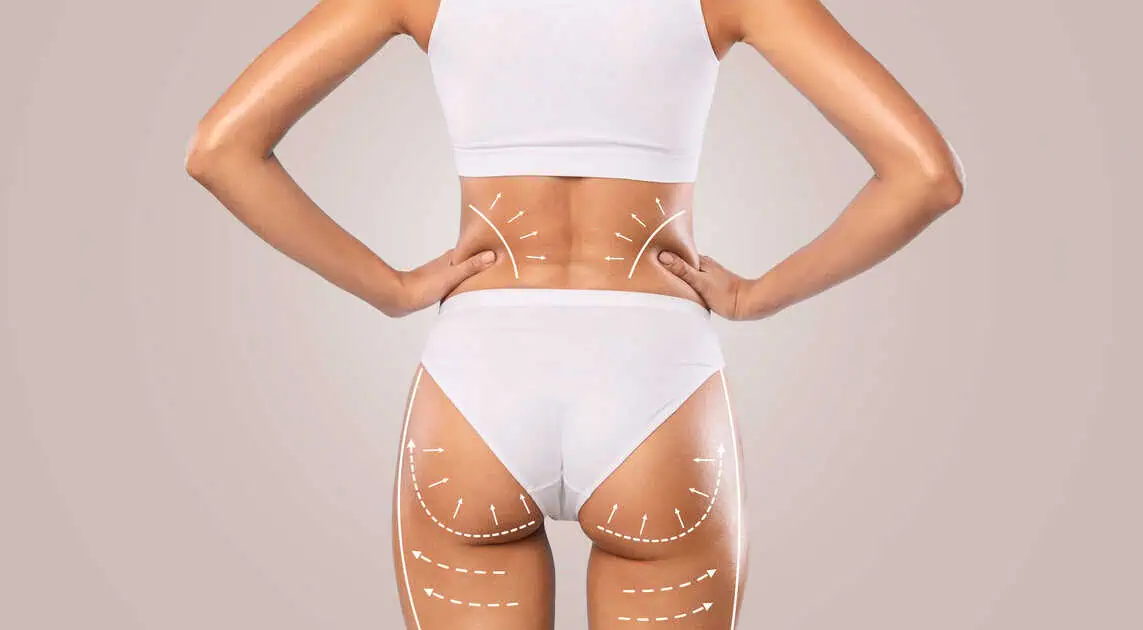Table of Contents
When your reflection shows signs of sagging skin, jowls, or loss of jawline definition, it’s natural to consider your options. Many people want lasting improvement without committing to invasive surgery or extended downtime. That’s where FaceTite comes in—a minimally invasive procedure using radiofrequency skin tightening to help restore youthful contours.
If you’re considering non-surgical facelifts and want to know exactly how it works, this guide walks you through each step: before, during, and after. Whether you’re seeking FaceTite for jawline contouring, early signs of aging, or improving FaceTite for older skin, understanding the steps can help you feel more confident about your decision.
Layton Aesthetic Plastic Surgery offers FaceTite in Kerrville and Houston, TX, to help patients regain firmer, more defined facial contours without traditional surgery. Here’s what you need to know.
Understanding FaceTite: A Minimally Invasive Alternative
FaceTite is a cosmetic procedure that reduces skin laxity and improves facial definition using radiofrequency-assisted lipolysis (RFAL). A small device is inserted just below the skin’s surface, delivering heat that melts excess fat and tightens the surrounding tissue by stimulating collagen production.
Unlike traditional facelifts, which involve large incisions and long recovery periods, FaceTite offers:
- Smaller entry points with minimal scarring
- Local anesthesia
- Less downtime
- Noticeable and lasting results
It’s ideal for those with mild to moderate sagging who aren’t ready for surgery but want longer-lasting outcomes than injectables or topical treatments can offer.
Preparing for Your FaceTite Appointment
Most patients considering non-surgical facial rejuvenation want to feel informed and at ease from day one. Here’s how you can get ready:
Initial Consultation
During your first consultation with Layton Aesthetic Plastic Surgery, your provider will assess your facial structure, skin condition, and goals. They’ll determine if you’re a good candidate for FaceTite for jawline contouring, tightening the neck, or addressing lower face laxity.
Be prepared to discuss:
- Any medications or supplements you’re taking
- Past procedures or cosmetic treatments
- Medical history, including conditions that affect healing
Pre-Procedure Instructions
To minimize bruising or complications, you may be advised to:
- Stop taking blood-thinning medications or supplements (e.g., aspirin, ibuprofen, vitamin E) for about one week before treatment
- Avoid alcohol and smoking before your procedure
- Stay hydrated and eat a light meal on the day of treatment
Following these guidelines supports a smoother treatment experience and better healing outcomes.
What Happens During the FaceTite Procedure
Step-by-Step Breakdown
Understanding what happens during treatment can relieve anxiety and help you plan better.
- Numbing the area: Local anesthesia is applied to ensure comfort. Patients typically report little to no pain during the procedure.
- Small insertion point: A tiny incision allows the cannula (a small probe) to go just beneath the skin.
- Radiofrequency energy delivery: The probe delivers heat to the underlying tissue, melting fat and tightening skin.
- Monitoring and safety: The device includes safety controls that prevent overheating and ensure even energy distribution.
- Duration: Treatments usually take between one to two hours.
What Areas Can Be Treated?
- Lower cheeks and jowls
- Under the chin and neck
- Around the mouth and nasolabial folds
The procedure is especially effective for patients looking for FaceTite for older skin, as collagen stimulation continues to improve skin quality over time.
Immediate Post-Procedure Experience
Once your FaceTite session is complete, you’ll begin the initial healing phase. While the treatment is less intense than surgery, some recovery is still needed.
Right After Treatment
Expect the following:
- Mild swelling and bruising
- Slight soreness or tightness
- Minimal redness at insertion sites
These effects are temporary and typically resolve within several days.
You’ll likely be fitted with a compression garment to help reduce swelling and support your new contours. Most patients wear it for at least 48 hours, followed by limited use over the next few days.
Downtime and Recovery Tips
- Plan to rest for 24–48 hours post-procedure
- Avoid strenuous exercise for up to one week
- Keep the area clean and follow any aftercare instructions
- Sleep with your head elevated to reduce swelling
This period is crucial if you’re wondering about the real difference between FaceTite before and after. Though subtle changes may be visible early on, your best results will develop over time.
Long-Term Results and What to Expect
The real value of FaceTite lies in its longer-term impact. As collagen production ramps up, skin becomes firmer and more elastic.
When Will You See Results?
- Initial improvement: Within the first few weeks, as swelling reduces and fat volume shrinks
- Peak results: Around 3 to 6 months, as collagen continues to form
- Sustained outcome: Results may last up to 3–5 years, depending on individual aging and lifestyle factors
Those with stable weights and healthy skincare habits enjoy the most long-lasting benefits.
Maintenance Tips
- Use sun protection to preserve skin quality
- Follow a regular skincare regimen that includes hydration and retinoids (as recommended)
- Schedule periodic consultations to assess whether complementary treatments—like Morpheus8 or fillers—could enhance results
By staying proactive, you can extend the benefits of radiofrequency skin tightening without requiring surgical intervention.
Comparing FaceTite to Other Non-Surgical Facelift Options
You’ve probably encountered many non-surgical facelift options, from thread lifts to ultrasound and laser therapies. What makes FaceTite different?
| Treatment | Invasiveness | Downtime | Duration of Results | Best For |
| FaceTite | Minimally | 3–7 days | 1–5 years | Skin laxity + mild fat |
| Thread lift | Minimally | 2–5 days | 1–2 years | Mild sagging only |
| Ultherapy / HIFU | Non-invasive | None to 1 day | Up to 1 year | Mild skin laxity |
| Laser skin tightening | Non-invasive | Minimal | Varies | Surface-level firmness |
For individuals in their 40s to early 60s looking for noticeable yet natural improvement, FaceTite in Kerrville and Houston, TX, offers a stronger, longer-lasting solution without full surgery.
Who Is a Good Candidate for FaceTite?
You may be a candidate for FaceTite if you:
- Have moderate skin laxity in the lower face or neck
- Want visible tightening and contouring without surgery
- Are in good general health
- Have realistic expectations and understand gradual improvement
It’s especially popular among those seeing early aging changes and deciding between injectables and a surgical lift.
Realistic Expectations: FaceTite Before and After
Understanding the FaceTite before and after transformation helps align expectations with outcomes. While you won’t leave the office looking like you’ve had a surgical facelift, the improvement is still very noticeable.
Most patients report:
- Better jawline and neck definition
- Firmer, more youthful-looking skin
- A slimmer facial profile due to fat reduction
Your final look will be subtle yet satisfying—refreshed, not overdone. That’s what makes non-surgical facial rejuvenation so appealing to many.
The Subtle Lift Your Face Has Been Waiting For
FaceTite offers a practical solution for people who want real results without the risks and downtime of surgery. If sagging cheeks, jowls, or a softening jawline are starting to affect your confidence, it might be time to consider this advanced treatment.
Layton Aesthetic Plastic Surgery specializes in FaceTite in Kerrville and Houston, TX, helping patients restore definition and youthfulness with care, precision, and professionalism.
Say goodbye to sagging skin—book now to schedule a personalized consultation. Contact us to learn if FaceTite is right for you.





